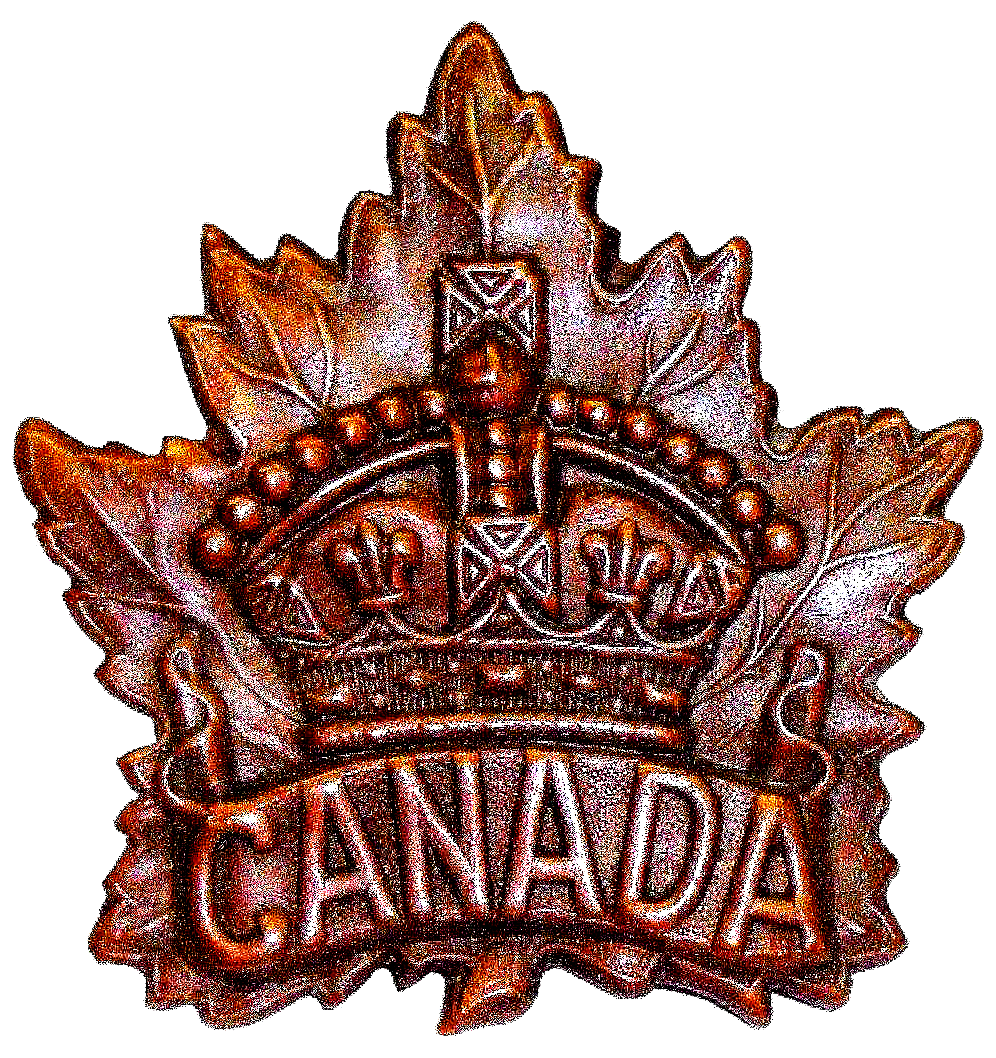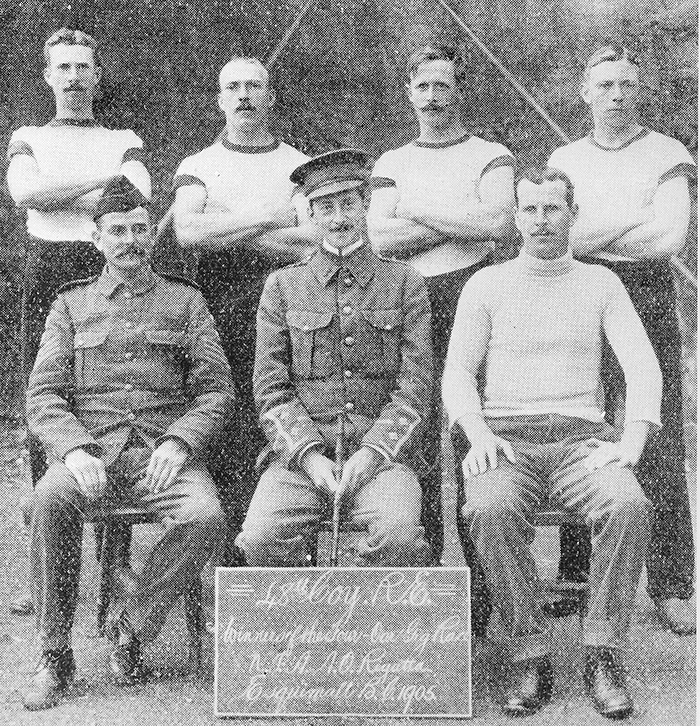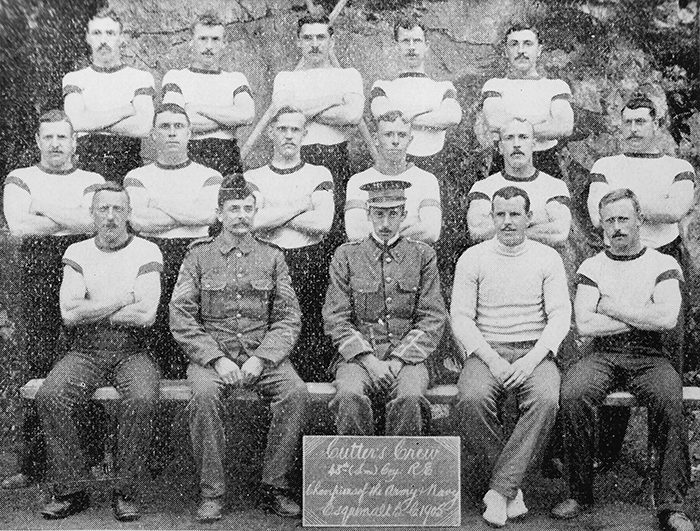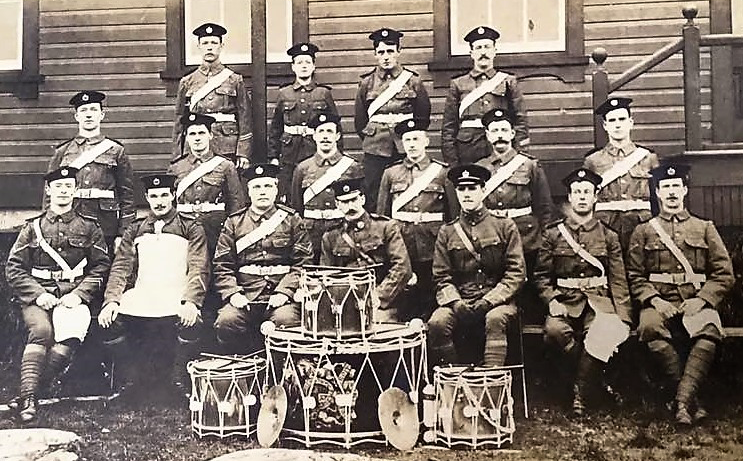
OPCMH
ORGANIZATION
for
PRESERVATION
of
CANADIAN
MILITARY
HERITAGE |

OPCMH
Visitor No.:
1493414
since
2015-03-21
| |
HISTORY OF WORK POINT BARRACKS
by Jack Bates
PART 3 — 1894 to 1906
1905
Daily Colonist
February 21, 1905
Canadian Troops Will Guard Dominion’s Gateways
Halifax and Esquimalt Forts Hereafter to be Manned and Maintained
by Canadians at Dominion’s Expense — A Great Imperial Trust
Ottawa, Feb. 29 (Special) — The government of the Dominion of Canada will take over the defences of Halifax and Esquimalt on July 1 next. Arrangements have been completed with the Imperial government terminating the negotiations which have ben carried on through Earl Grey, and which have been comparatively short. Three years ago at the colonial conference, Canada offered to reieve Great Britain of the expense of these two important points in the Empire scheme of defence. The Canadian offer was a standing one, and it was intimated some time ago that if re-opened, it might be acceptable. This was done and terms were soon sgreed upon. Canada undertakes to maintain the present defences in first class shape and to garrison them with all necessary branches of the service – infantry, artillery, engineers, army service corps, signalers and medical corps. While the whole of the British forces will not march out on July 1, it is expected that the bulk of the garrisons will get their marching orders then. The artillery and engineering experts will likely be retained on Canadian pay until others are trained to take their places. The estimated annual cost to Canada of maintaining those two ports is two million dollars per day.
Col. Sam Hughes in the house tonight asked if the current report were true that on July 1 the government would take over the garrisons at Esquimalt and Halifax. He would be sorry, he said, if England surrendered them if Canada was to contribute to Imperial defence, and he trusted she would, in place of garrisoning these two points, be found garrisoning Portsmouth, Gibraltar, Malta and other places.
Sir Frederick Borden, replying, said that Canada a short time ago renewed the offer made to the Imperial government in 1902 at the time of the colonial conference to relieve the mother country of all expenditures in maintaining garrisons at Halifax and Esquimalt, and that the offer had been accepted by the Imperial authorities. The rinciples upon which the transfer was to be made were those that the Dominion government would control the grrisons and bear all expenditures connected with their maintenance. Referring to Col. Hughes’ suggestion, he said that charity begins at home. Let us in this case encur our own responsibilities within our own boundaries first.
Mr. R.L. Borden asked if the two ports would be maintained in the same state of efficiency as in the past as far as the fortifications were concerned.
Sir Frederick Borden replied: “Probably so.” Proceeding, he said that so far as his information went, there was no indication of intention on the part of the British government to abandon Halifax as a naval base.
For the news contained in the above dispatch the public had been prepared only by indefinite and fragmentary reports from time to time during the past few years, so that the announcement of a decision accomplished in reality precedes the general knowledge of the negotiations. In the past the Dominion has paid a portion of the cost of maintenance at Esquimalt. In connection with the drydock at that point. Recently, according to another dispatch from Ottawa, there was a suggestion put forward by the Imperial authorities that the Dominion should contribute an annual sum of $1,250,000 toward the prosecution of defence works at this outpost of the Empire and the maintenance of troops and engineers necessary, the direction of works and forces remaining the in Imperial hands – although this is an unusual course for the home government to adopt in such regard. This was not acceptable to the federal government, but out of this suggestion came the negotiations of which the present decision is the end. The British authorities have accepted the Canadian offer, and there remains nothing but to carry out the terms of the new arrangement, appropriately set for the approaching celebration of the national birthday.
Compliment to Canada
There can be no denial of the high compliment which the home government pays to the Dominion and its people in thus entrusting to their care two of the essential links in the great chain of inter – colonial and Imperial defence, the western one of which at all events there had been no seeming intention to reduce. Although the public was scarcely prepared for the big news of transfer, it may be said that some of the military men were in no more expectant condition. Col. English, commanding the forces at Work Point and Esquimalt, informed the Colonist last evening that the press telegrams furnished his first and only intimation of the contemplated change, the only possible hint as to which might have been read between the lines of orders cancelling the instructions transferring certain of the army officers to Halifax. The commanding officer at Work Point is not inclined to the opinion that there will be any general evacuation by the Imperial troops on July, 1, as the construction of the defensive works will necessarily be proceeding during some time to come, and experts with knowledge of the local conditions and necessities will be required. Nor does he regard it as at all probable thsts the future guardians of this port will be largely recruited out of time - expired men from the Imperial forces now centred here and well satisfied with Victoria conditions.
Col. Holmes, D.O.C., on the other hand was expecting exactly just such a solution of the problem with respect to the maintenance of Halifax and Esquimalt garrisons, and sees in the change but a natural restoration of the order of things when “C” Battery furnished the military strength at this western sentry point of Canada – although on the larger scale proportionate to the growth in population and importance of the Dominion. H is not inclined to the opinion that there will be any important recruiting from the Imperial forces.
The Public and the Change
With the public of Victoria generally opinion appears to be divided between genuine regret at the severance of very pleasant relations with a portion of the fighting forces of the Motherland, whose presence has made ever near and dear the bond of close relationship, and Canadian pride that the government of the Dominion has taken a portion of the burden from John Bull’s shoulders, while the sons of Canada have been held to be worthy to bear the stern responsibilities of devolving upon them as a direct result of the alteration of arranements. It would have been matter for larger and fuller self congratulation had the announcement from Ottawa been supplemented with an intimation that Canada would at the same time demonstrate her recognition of the necessity for Naval strength at Esquimalt to co-operate with and support the land contingent, and would therefore build Canadian ships to maintain them in reasonable conjunction with her associate land defence. There can be no doubt, in the view of mant staunch Canadians here resident, that in no way could the Dominnion government better express the appreciation of the necessities of the future and its capacity for protecting developing national interests than by determining to construct a series of modern warships at the two continental outposts, say one new ship in each three years, using Canadian materials, and manning with Canadians when they should have been completed. Thus, it is argued, would the most comprehensive plan for national self-protection and Imperial co-operation, be nationally developed.
March 8, 1905
SUBMARINE MINERS WILL DISBAND
Mine Field at Esquimalt Being Raised — Under Water Work to be Done by Navy
The mines laid at Esquimalt by the submarine mining branch of the Royal Engineers are being raised and will be shipped to England by the British ship Penthlisea, now loading stores ordnance and naval supplies being returned to England as a result of the dismantling of the station. Moreover, the submarine mining corps now affiliated with the Royal Engineers of the Work Point garrison are to be disbanded; this decision has been reached by the war office. The work will hereafter be carried out by the navy in stead of the Royal Engineers. This action is due to the report of a special committee which investigated the matter, which states that it considers the work of submarine mining could be better performed by the navy. No reflection was cast on the engineers engaged in the work; on the contrary, the work of the corps has commanded unstinted praise, but the opinion of the committee was that the work belonged to the sea service and this change is to take effect, but not yet.
The decision will have a far reaching effect. According to recent advices from England, the war office, in consultation with the admiralty, and acting on the instructions of the naval and military defence committee, have decided for the present to hand over the submarine mining defences to defended ports to the navy. These ports are Portsmouth, Plymouth, Milford Haven and Chatham, and in due course the submarine mining companies, R.E., will be withdrawn from these stations and employed elsewhere. The Admiralty intend to abolish the system of mine fields, and to substitute a torpedo and submarine defence, aided by the existing searchlights, which will continue to be worked by the sappers.
A few days ago the army council officially notified the military districts of this change in coast defence, which they state is due to the new requirements of Imperial defence, and the council speak in excellent terms of the satisfactory and efficient manner in which submarine mining duties have been carried out. This is, so far, the present position of matters, as it affects the Royal Engineers.
The reduction of the submarine mining branch of the corps of Royal Engineers will involve thirteen regular and ten militia companies. The foreign service units are stationed at Bermuda, Malta, Halifax, N.S., Hong Kong and Esquimalt. At home, the regular companies are employed at Gosport, Felixstowe, Lisle of Wight, Plymouth, Cork, Gravesend, Pembroke Dock and Sheerness. The militia units comprise the Falmouth, Harrwich, Humbar Medway, Milfors Haven, Needles, Plymouth, Portsmouth, Thames and Western Divisions. The transfer of the mine fields in the admiralty charge will be a general saving, and on the army estimates a reduction of 100,000 lbs per annum will result.
The Royal Engineers will retain the submarine mining services for the present at such stations as Weymouth, Cardiff, Hull, Leith, Liverpool, Glasgow, etc. These are classified as “mercantile ports,” and will continue to be defended by sections of the coast battalion, R.E. The question of retaining a submarine mining defence for the Needles in the hand of the Royal Engineers is under the consideration of the military authorities.
Naval officers and men have no love for the Brennan torpedo; it has been nicknamed by them “the Engineers’ toy,” but it is to be retained, in view of the cost of installation, as part of the shore defences, and will be run, as now, by sections of the Royal Engineers. This is apparently the only extent to which the corps of Royal Engineers will suffer at present by the new scheme of home defence.
How the change will affect the two steamers, Beryl and Topaz, built here for the submarine mining corps of the Royal Engineers, is not known. Both vessels are at Esquimalt.
The 48th (Sm) Coy R.E. were winners of the Four- Oar Gig Race N.R.A. A.O. Regatta at Esquimalt B.C. and also the Cutter’s Crew won the championship of the Army Navy in 1905.
 |
| 48th Coy R E - Courtesy Fort Rodd Hill Archives |
 |
| Cutter’s Crew - Courtesy Fort Rodd Hill Archives |
COLONIST
April 4, 1905 (7)
Esquimalt Road – (formerly Work street) – Rock Bay bridge to western boundary.
COLONIST
May 21, 1905 (2)
FOOTBALLERS TO ENTERTAIN
Grand Concert in Y.M.C.A. Hall on Tuesday Evening Next
Next Tuesday evening in Y.M.C.A. hall, under the auspices of the Vancouver Island Football Association, a grand concert will be given, at which the cups and medals won by the Garrison football club will be presented. This team has won the championship of Victoria District, Vancouver Island and British Columbia, and it is proposed to do honor to this splendid team publicly by the means above stated. Every lover of football and, for that matter, all other athletic sports, should be present, and a cordial invitation is hereby extended to all such.
Many prominent citizens have intimated their intention to be present. Lieutenant-Colonel English and Major Bland, with the officers of the Garrison, have expressed their intention of attending, and it is expected that the officers of H.M.S. Shearwater and Egeria will also honor the affair with their presence.
The chair will be taken at 8:15 p.m. by the president of the association, Mr. J.G. Brown, and a programme of vocal music, instrumental music and recitations will be given by the following ladies and gentlemen: Mrs. Theaberg, Miss Breidford, Messrs. Sharcott, Dare, Simpson. Mandolin club (Garrison), E. Foulds, L. York, W. Allen, A. Semple and J.G. Brown. The medals won by the Victoria West Basketball team will also be presented during the evening.
Visiting athletes will be accorded a hearty welcome and the committee in charge wish it to be thoroughly understood that the concert is not a smoking concert and that they will be pleased to see as many ladies present as possible.
COLONIST
May 21, 1905 (6)
FOOTBALL CONCERT
The management of the Vancouver Island Football Association are sparing no effort to make their concert a success. The concert will be held in the Y.M.C.A rooms Tuesday evening, commencing at 8 o’clock. Besides the concert there will be the presentation of the cup and medals won by the Garrison during the season. The Challenge Cup for the Vancouver Island championship, as well as the medals for the B.C. championship, and also those won by the Victoria West and Cloverdale in the basketball series will be present. The cup, which is now on exhibition in the window of J. Wenger, is a very handsome trophy and one well worth winning. Among those who will contribute to the programme are Mrs. Theberg, Miss Breidford, the Garrison Mandolin Club, Messrs. J.G. Brown, Simpson, Dave Sharcot, Turner, York and Richardson.
COLONIST
June 8, 1905
SACRED GROUND
Although the navy has formally withdrawn from Esquimalt and there has been a general suspension of the defence works in that locality, it is not to be for a moment concluded that the naval yard and adjacent territory are open fields as yet for the amateur or professional camera expert. Indeed, it is quite the contrary. The Imperial property still is scared ground. As a result of not realizing this, two well-meaning tourists who yesterday amused themselves by snap shooting the guns at Signal Hill, found themselves unceremoniously taken in charge by one of the soldiers on duty. Explanations were forthcoming and the trembling ones were released upon the destruction of the negatives.
WORK POINT BARRACKS
1905
 |
| Royal Engineer’s Band |
... continued in 1906 ...
|

